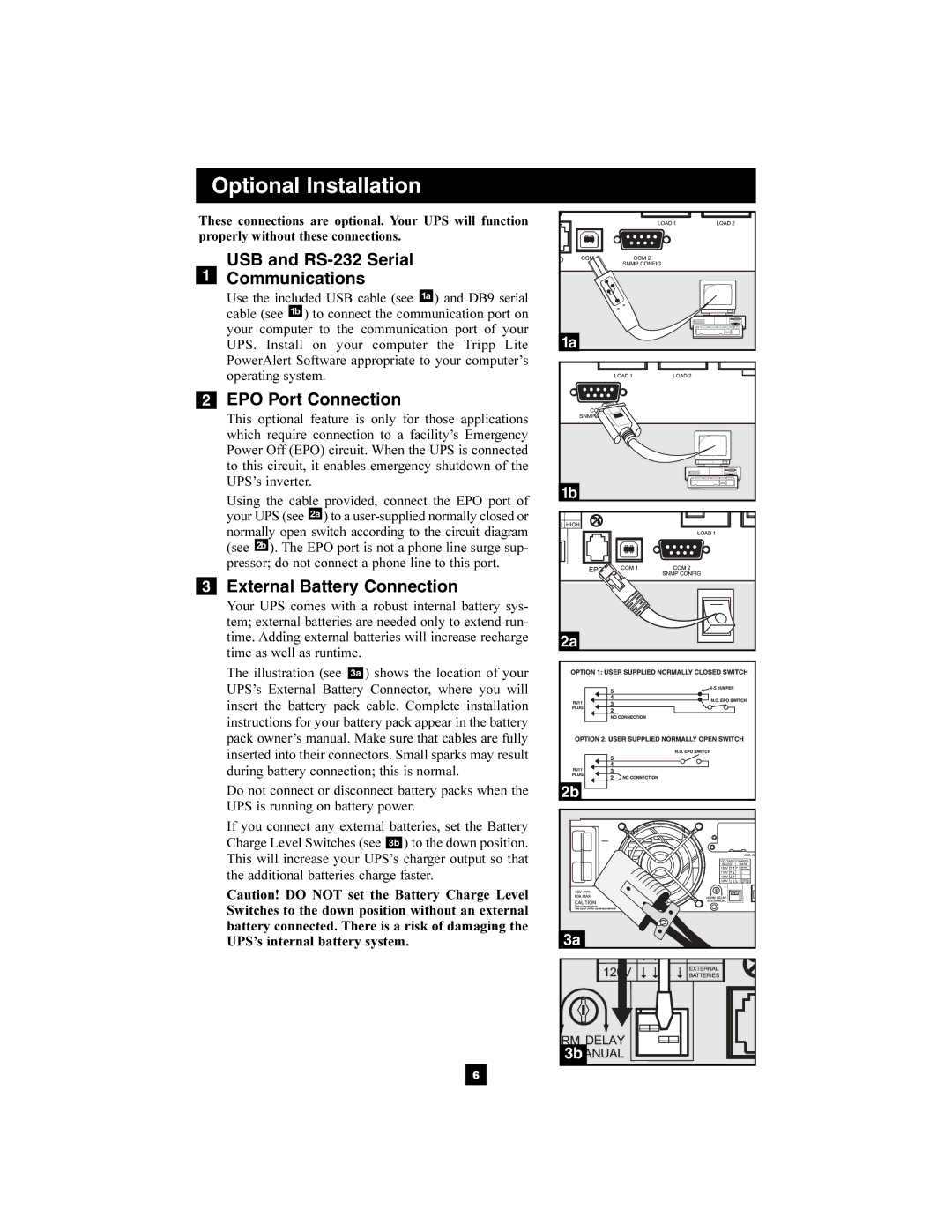
Optional Installation
These connections are optional. Your UPS will function properly without these connections.
USB and RS-232 Serial
1Communications
Use the included USB cable (see 1a ) and DB9 serial cable (see 1b ) to connect the communication port on your computer to the communication port of your UPS. Install on your computer the Tripp Lite PowerAlert Software appropriate to your computer’s operating system.
2EPO Port Connection
This optional feature is only for those applications which require connection to a facility’s Emergency Power Off (EPO) circuit. When the UPS is connected to this circuit, it enables emergency shutdown of the UPS’s inverter.
Using the cable provided, connect the EPO port of
your UPS (see 2a ) to a
(see 2b ). The EPO port is not a phone line surge sup- pressor; do not connect a phone line to this port.
3External Battery Connection
Your UPS comes with a robust internal battery sys- tem; external batteries are needed only to extend run- time. Adding external batteries will increase recharge time as well as runtime.
The illustration (see 3a ) shows the location of your UPS’s External Battery Connector, where you will insert the battery pack cable. Complete installation instructions for your battery pack appear in the battery pack owner’s manual. Make sure that cables are fully inserted into their connectors. Small sparks may result during battery connection; this is normal.
Do not connect or disconnect battery packs when the UPS is running on battery power.
If you connect any external batteries, set the Battery Charge Level Switches (see 3b ) to the down position. This will increase your UPS’s charger output so that the additional batteries charge faster.
Caution! DO NOT set the Battery Charge Level Switches to the down position without an external battery connected. There is a risk of damaging the UPS’s internal battery system.
1a |
1b |
2a |
2b |
3a |
3b |
6
